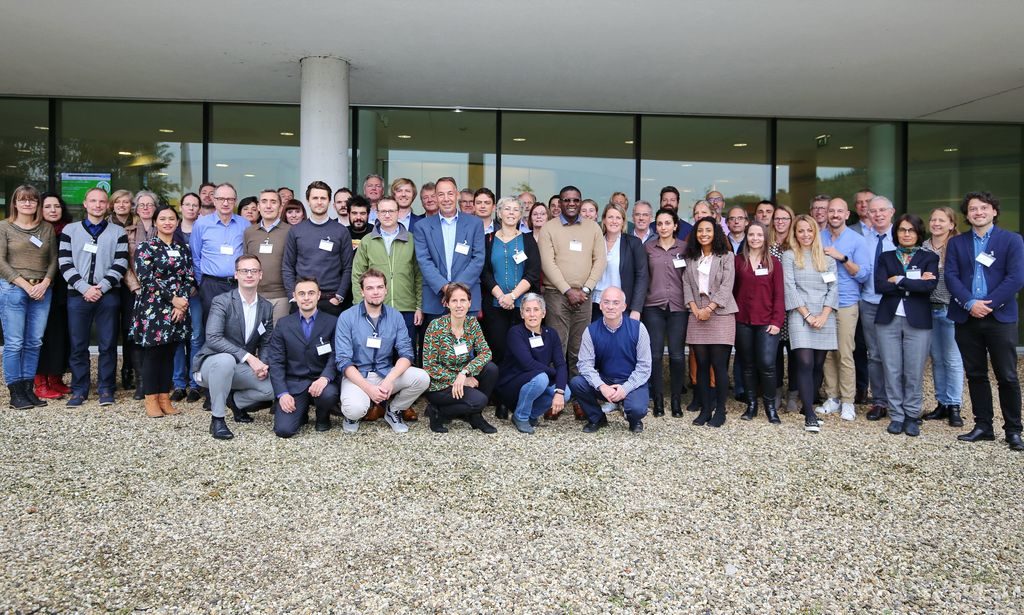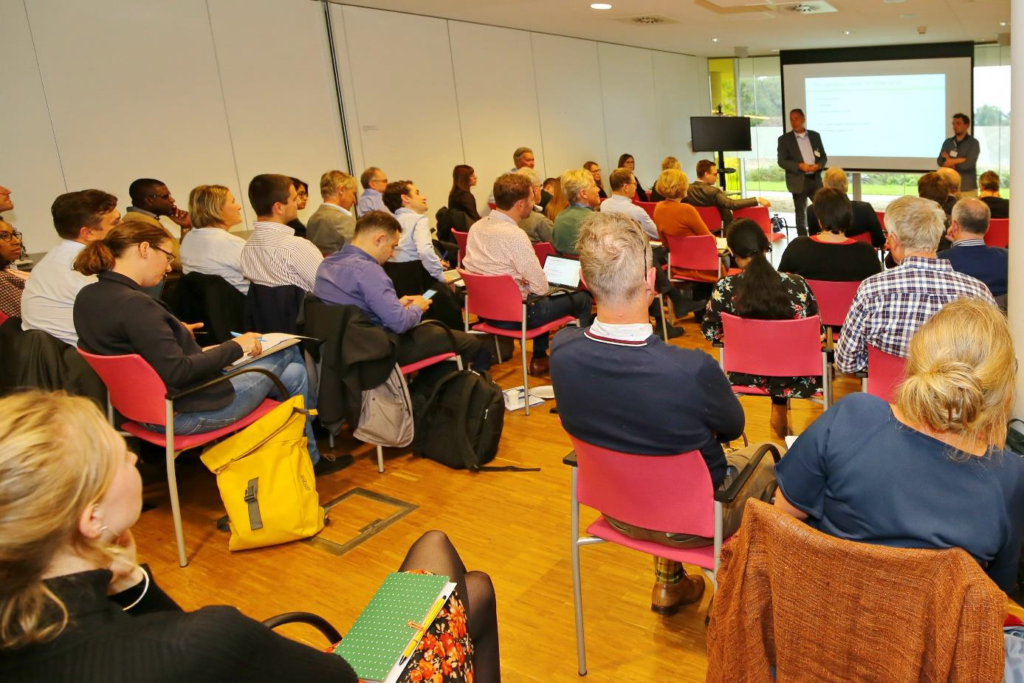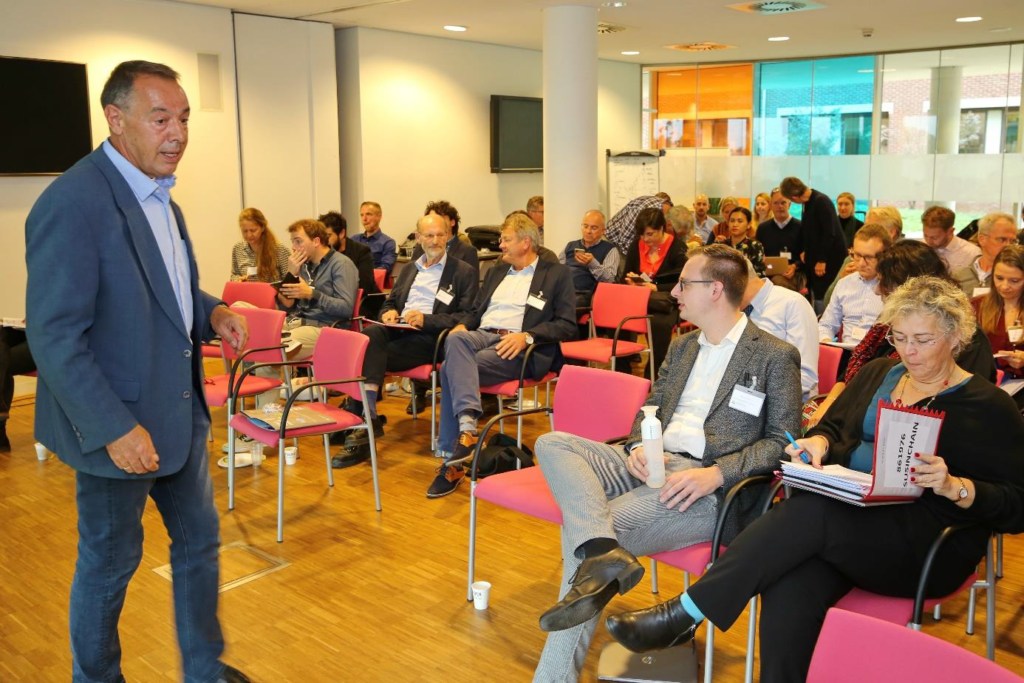SUSINCHAIN Project: Insects as a Substitute for Animal Protein get a Boost
SUSINCHAIN, a project funded by Horizon 2020 program, started on 1 October 2019. The project aims to contribute to a novel protein supply for feed and food in Europe. It ​​seeks to overcome the barriers to increase the value of the insect value chain and opening the market by pooling forces in a comprehensive multi-stakeholder consortium.
The project was officially launched on the 7th of October during its kickoff meeting that took place in the facilities of Wageningen University. During two days, the large consortium presented its activities and its role within the project.

Protein supply chain in the future extremely critical
The expected growth of the world population to 9.1 billion in 2050 and the significant change in global food habits require global food production to increase by about 60%. The protein supply of feed and food is extremely critical and requires a transition in the protein sources. Edible insects can efficiently upgrade low-grade food production by-products to high-quality proteins, amino acids and vitamins. Insects are thus considered the “missing link” in the food system of a circular and sustainable economy. Insects and insect-derived products have entered the European market since they were first recognized in about 2010 as a valuable source of protein for feed and food production. However, the expansion of the value chain for insects in Europe is progressing relatively slowly.
Therefore, SUSINCHAIN aims to test and demonstrate newly developed technologies, products and procedures to ensure a shift to technology readiness level 6 or higher for insect chains based on black soldier fly, housefly, mealworm and crickets for feed and / or food production.
20% insect protein in 2025
These measures provide stakeholders in the insect value chain with the knowledge and data they need to reduce the cost of insect products, handle insects more efficiently, and market insect protein applications in animal feed and regular human diets that are safe and sustainable. This will pave the way for a further upscaling and commercialization of the European insect sector, replacing 10% of insect protein protein in animal feed and 20% in human nutrition, and a thousandfold increase in production volume and jobs per year 2025 leads.
The project has a duration of 48 months and the project is being carried out in collaboration with 18 industrial and 17 academic partners with a total budget of over € 8.5 million. Dr. Teun Veldkamp as Coordinator and Prof. Ine van der Fels-Klerx as Deputy Coordinator, both Wageningen University & Research, will be in charge of the project.
The consortium of SUSINCHAIN ​​includes the following partners from different European countries: Wageningen Research, INAGRO, Katholieke Universiteit Leuven, University Degli Studi Di Torino, Kobenhavns University, DIL German Institute of Food Technology e. V., Sociedade Portuguesa de Inovação, Civic Consulting, AgriProtein Holdings, Bioflytech, Universidade Catolica Portuguesa, DSM Nutritional Products, Dymotec, ForFarmers Corporate Services, Hermetia Baruth, HiProMine, Havforskningsinstituttet, Leitat, Sociedade de Estudos de Analise Sensorial a Produtos Alimentares (Sense Test), Technical University of Berlin, Medical University of Vienna, Università Politecnica delle Marche, Wageningen University, Swiss Federal Institute of Technology Zurich, Microwave Energy Applications Management, Hellenic Center for Marine Research, Institut National De La Recherche Agronomique, Danmarks Tekniske Universitet, EWOS Innovation, Nutrition Sciences NV, New Generation Nutrition, Buhler Insect Technology Solutions, Bestico, Bugging Denmark and Protifarm.


